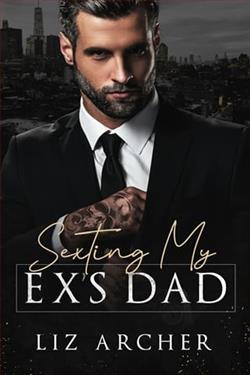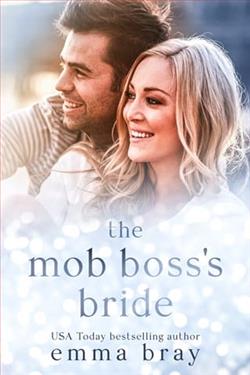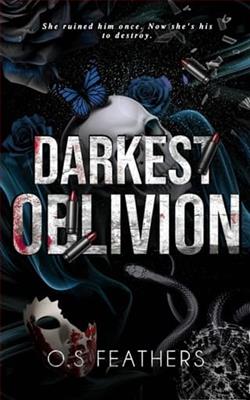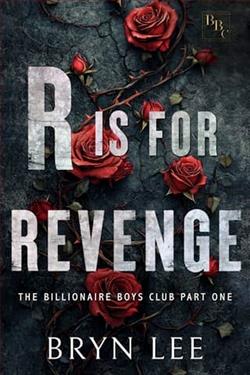Page 71 of The Business of Blood
I reached for it, but my fingers were too cold and stiff to move, my elbows had become rusted hinges. My face burned. I was on fire. And heavy, unwieldy like my tongue.
Was I going to die? Had there been something on the paper, in the ink? Poison, perhaps?
A strong, bony hand shoved my head toward my knees.
“Close your eyes and breathe.” I hadn’t heard Aunt Nola sound so completely sane in ten years.
I couldn’t close my eyes. I could only stare at the letter through vision blurred by vertigo and tears.
Dearest Fiona…
Did he think me dear? Dearest?
Did Jack the Ripper…likeme? Did he know me?
Did I know him?
My stomach rolled dangerously, and I gripped the hand Nola slipped through mine hard enough to crush her fingers, but she made no protestation.
“He’s been watching me.” I gulped breaths like a fish drowning in the air. “How? How could he be close enough to—? Who? Who could possibly—? A-and when? How often does he watch—? From where? Fromwhere?”
“Peace, Fiona,” Nola crooned as she rubbed tender little circles on my back. “Peace, child.” She rested her head on my heaving shoulders and sangMo Gille Mearin the sweetest tones I’d heard since my father died. She made it to the third refrain before I could breathe normally again, soothed by the echoes of the clear Irish words fractured and sent back to me by my foyer.
I closed my eyes.
The darkness transported me home, where the air was scented with frost and barley and the River Shannon. Though the cottages were cozy and warm, we sat outside in the cold around a fire made of peat and rowan branches. My father did his best to belt outMo Gille Mearwith greater gusto than Father Seamus. Their tenors rang through Limerick with a harmonious rapture deepened by whisky and brightened by Robert O’Toole’s accordion, and Thomas McBride’s drum.
I could see him, my jolly da, red-faced and smiling, petting my hair as those of us gathered for the evening joined in the chorus.
I opened my eyes, and all the green grandeur disappeared, replaced by wreathed marble embellishments inlaid into dark wood. My house was grand. Grander than anything my father had been able to afford. I lived here because I’d taken one look at the Irish crystal chandelier throwing prisms onto the pale green paper interrupted by mahogany wainscoting and had fallen in love.
To be clear, I’d fallen in love with Aidan when he snuck me into the library at Trinity College. The dark wood in the house at Tite Street was precisely the same color, the banisters carved with the very likeness of the one I’d leaned against when he kissed me, surrounded by all those lovely books.
I still wore his ring on my right hand.
What a maudlin fool I’d turned out to be. I’d filled this house with lovely furnishings and handsome decorations.
Yet it was still so empty.
I’d give anything to be back in the modest Mahoney home, curled on my bed in the closet partitioned as a bedroom for me—the only girl—back behind the kitchen. The cookstove had warmed the east wall, and I’d press my hands to it in the morning when mother made breakfast.
How was it I could live in the largest city in the world and feel so utterly alone?
I had Nola with me, but one could rarely call her present. Even so, her song meant so much. She’d given me a gift.
She’d given me a memory. Something to cling to. To pull me back from the edge.
Stronger now, I reached for the letter, glad when my limbs proved capable of obeying me.
What would you like to do to me?the Ripper wondered.
I wondered, as well. I wondered all the time. In the beginning, it had been an obsession. A comfort. Pondering the dastardly things I’d do to Jack.
Did that make me a monster, too?
“That song was a favorite of Da’s.” I squeezed Nola’s hand, and she lifted her head from my shoulder.
“I know. I sang it for him when we were little.” She patted me indulgently as if I were the looney one.















